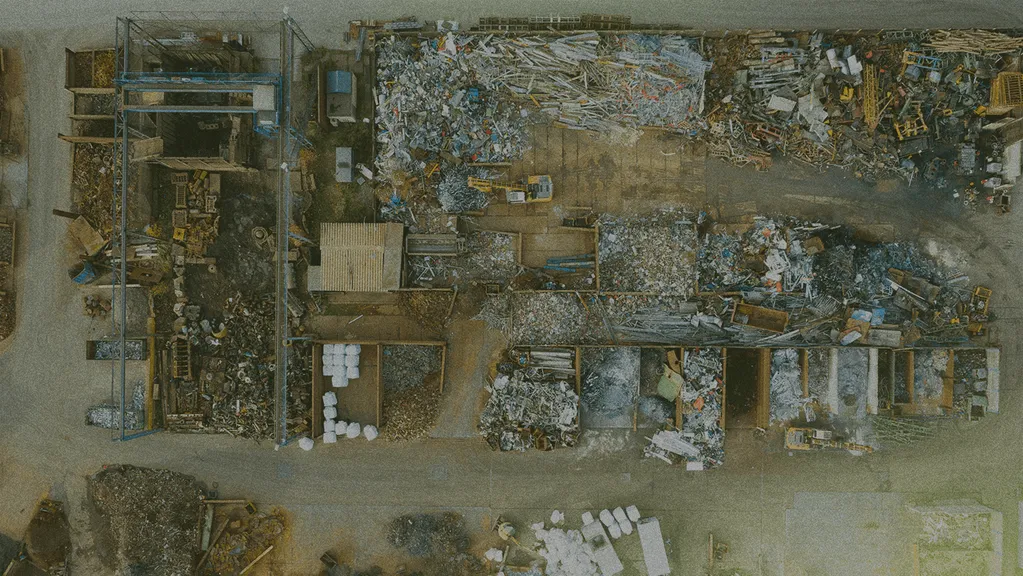What You Can (and Can’t) Recycle as Scrap Metal
Can You Recycle Metal?
The simple answer is yes, and you should. A lot of people don’t realize that scrap metal can be recycled and even sold for cash at local scrap yards. Instead of throwing it away, you can make sure it gets reused and even get paid for it.
You can also recycle small metal items, such as aluminum cans or food tins, through your regular curbside program. Just check your local guidelines to be sure. For businesses or anyone dealing with a large volume of metal, roll-off dumpster services simplify the process by handling transport, sorting, and delivery to the right facilities.
What’s Considered Scrap Metal?
Scrap metal is pretty much any leftover metal you’re no longer using. It could be from a construction job, a renovation, or just old stuff you’re clearing out at home. Things like broken appliances, metal furniture, pipes, wires, car parts, and tools all count.
As long as the material is mostly metal and not covered in hazardous substances or mixed with too much plastic or wood, a scrap yard will likely accept it. It's a good idea to call ahead if you're unsure about a specific item.
Dumpster Rental for Scrap Metal Recycling
A dumpster rental is the easiest way to get rid of large amounts of scrap metal from business projects or home renovations and ensure it’s properly recycled. Sourgum rents out dumpsters in different sizes, so you can get rid of scrap metal without driving it to a yard yourself.
We drop off the dumpster at your location, and you fill it up on your own schedule. Once it’s full, reach out to us, and we'll take it to a local scrap yard where the metal is weighed and priced based on market rates. You’ll get a certified ticket with the weight, metal type, and price per pound, and we’ll send you the payment based on that total.
Metal Household Items that Can Be Recycled
Unlike glass, which is difficult and costly to process due to contamination or breakage, most metals can be recycled endlessly without losing quality. While the material itself is highly reusable, where and how you recycle it depends on its size, type, and condition.
Some small metal items may be accepted through curbside recycling depending on your local program. But for most household metal, especially heavier or bulkier items, it’s better to bring them to a scrap yard or use a dumpster service. Just make sure that all items are free of any residue, because leftover food, grease, or chemicals can contaminate the recycling process and cause entire loads to be rejected.
Recyclable Items (Scrap Yard or Pickup Service):
Copper wiring and pipes inside walls, electrical systems, and plumbing
Aluminum items including cans and foil trays
Steel items including tools, shelving, bed frames, appliances, roofing, and beams
Brass fixtures including door knobs and locks
Stainless steel sinks, cookware, dishwasher interiors, and handrails
Cast iron frying pans and sewer pipes
Lead fishing weights, old batteries, and wheel weights (use caution and check local rules)
Metal Waste that Requires Special Disposal
Some items are deceptively complicated, like chip bags with a shiny foil lining. They may look like metal, but they’re made from multiple materials fused together, which makes them nearly impossible to separate and process.
Even small differences in coatings, adhesives, or chemical treatments can affect how an item behaves in a recycling facility, so they’re typically not accepted through curbside pickup or at scrap yards.
Here are some of the most common metal items that are difficult to recycle:
Foil-lined chip bags and candy wrappers: These are made of mixed layers of plastic and aluminum that can’t be separated.
Nonstick cookware (e.g., Teflon-coated pans): The coating prevents proper melting and can release toxic fumes when processed.
Paint cans with residue: Leftover paint is considered hazardous waste and requires special disposal.
Metal items combined with plastic, rubber, or fabric
Small hardware like nails, screws, and bolts: Too small for sorting equipment and often fall through machinery.
Pressurized containers (e.g., aerosol cans, propane tanks)
Electronics with metal parts: Items like phones must go to e-waste facilities due to internal components.


